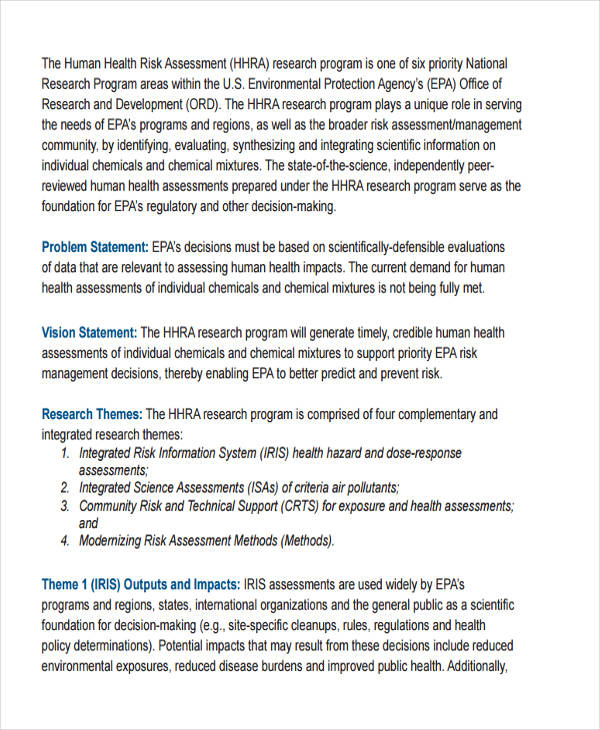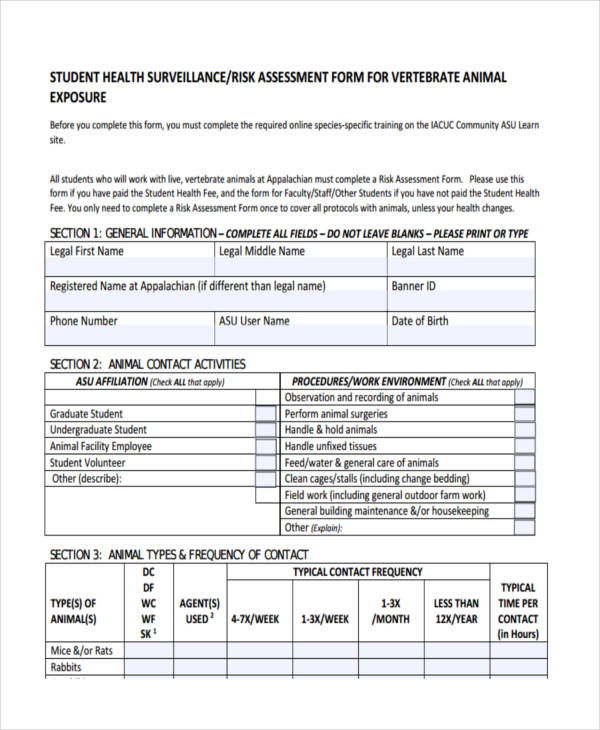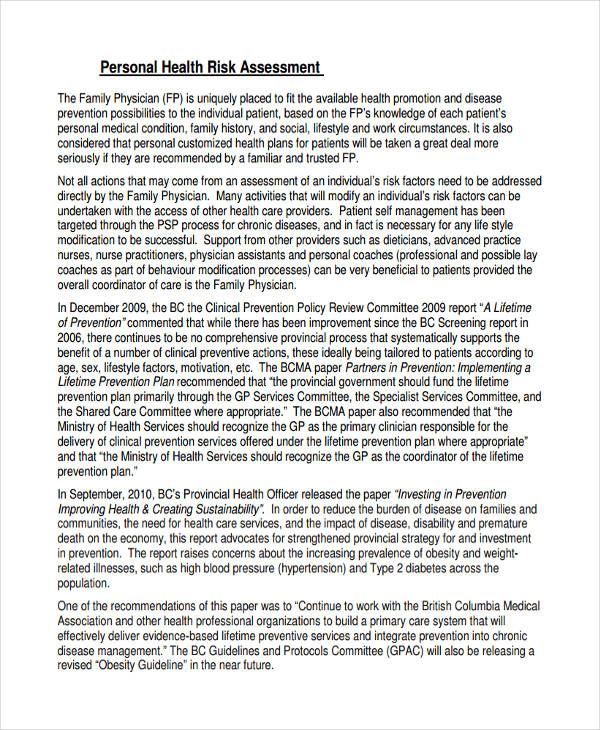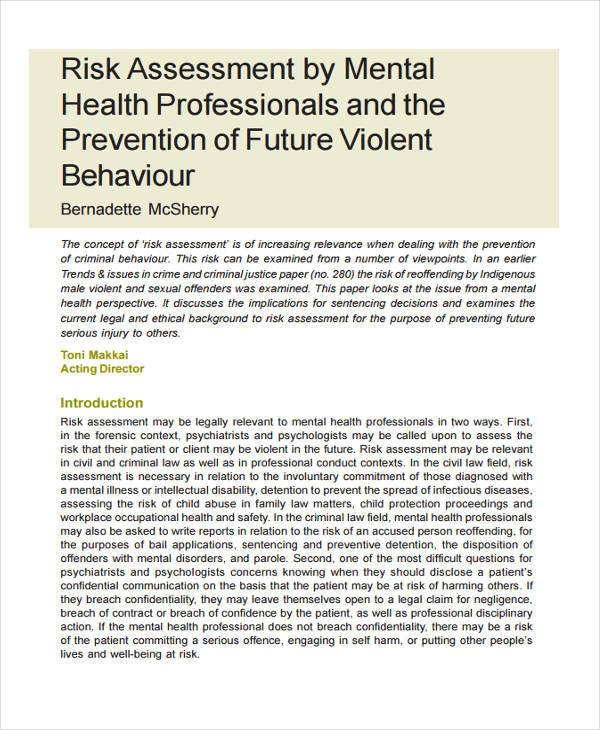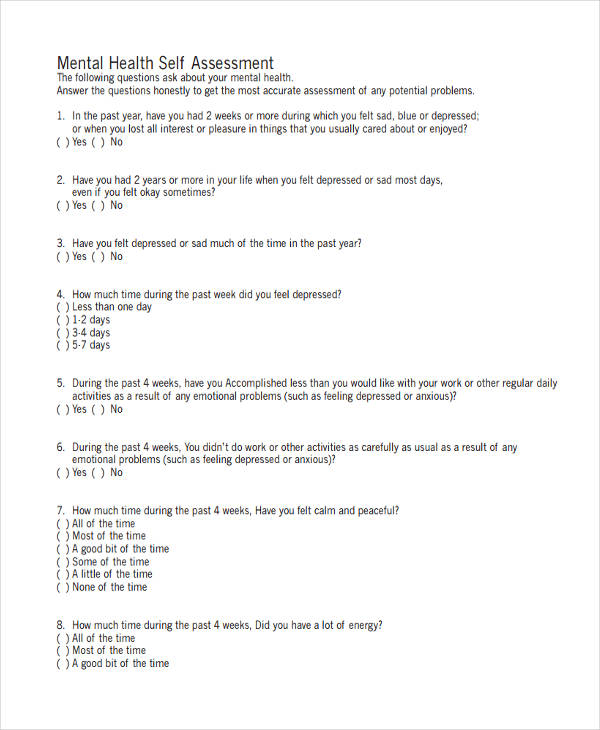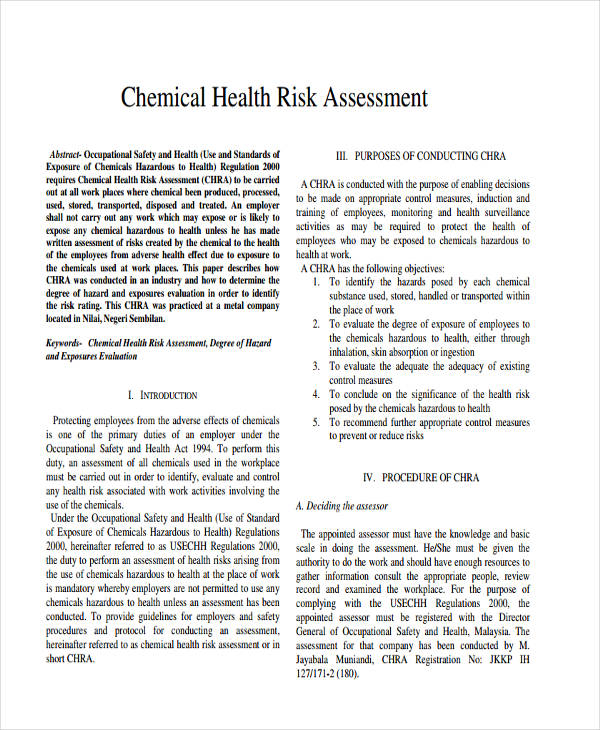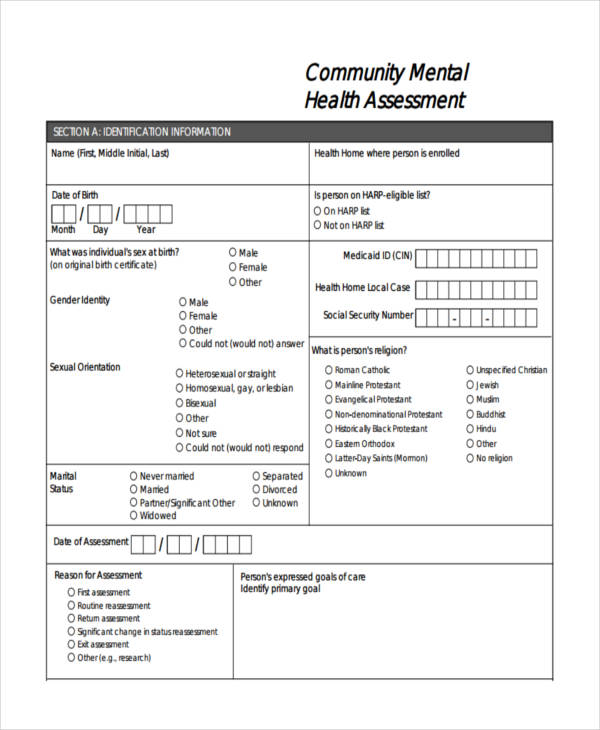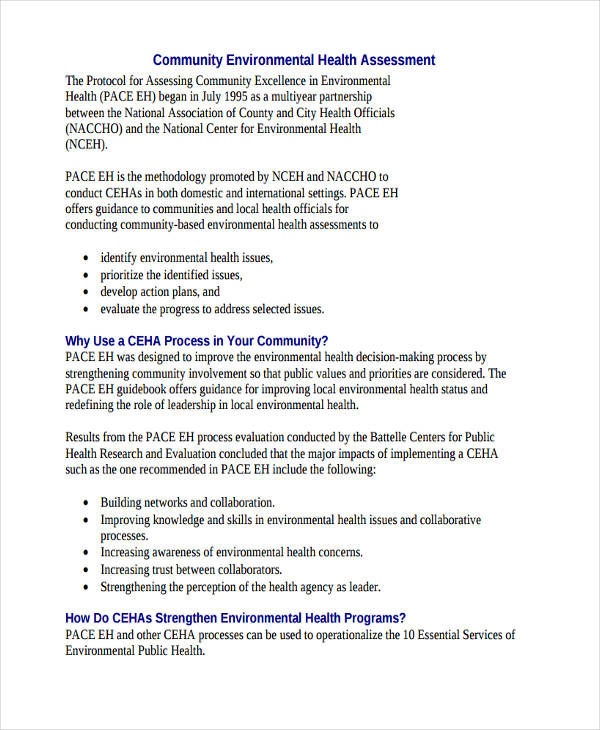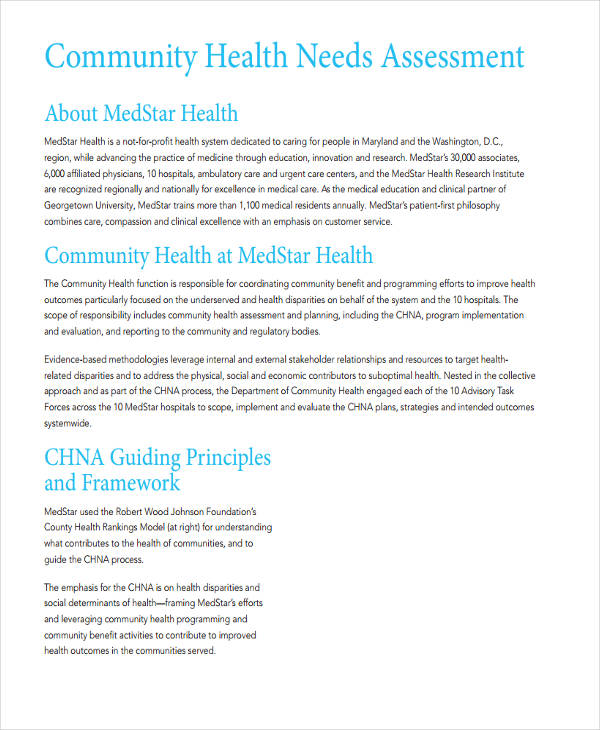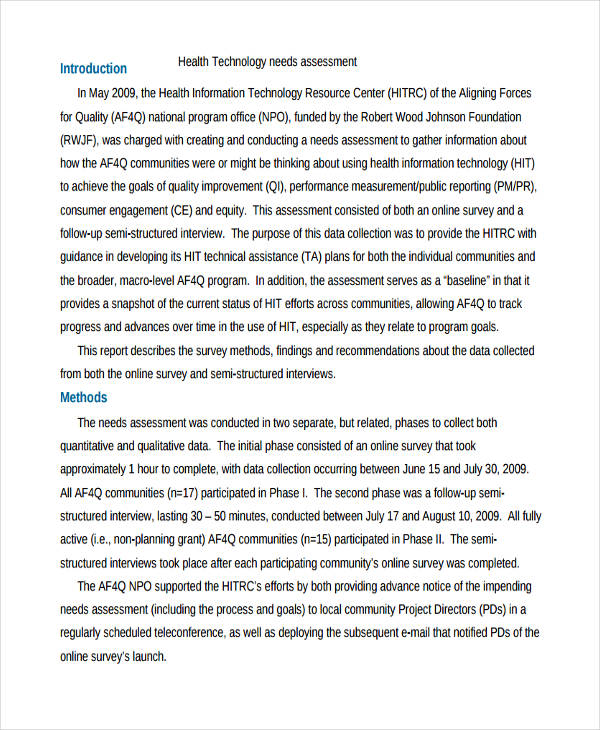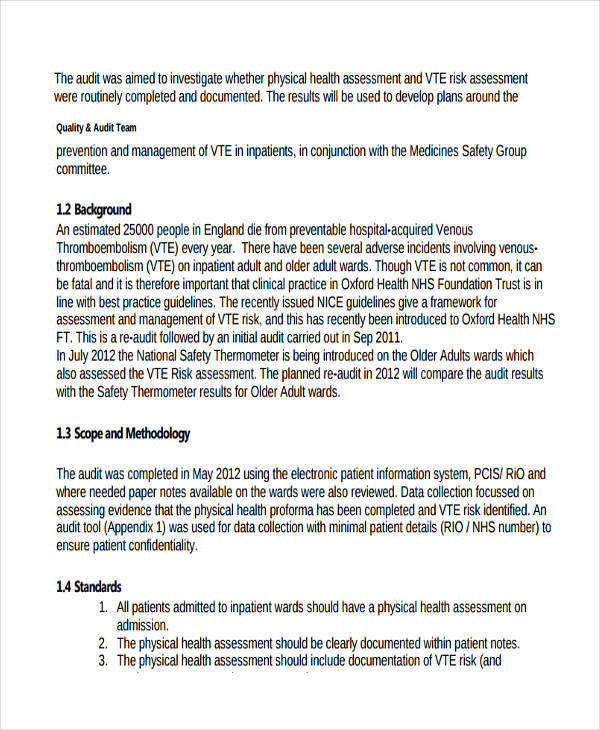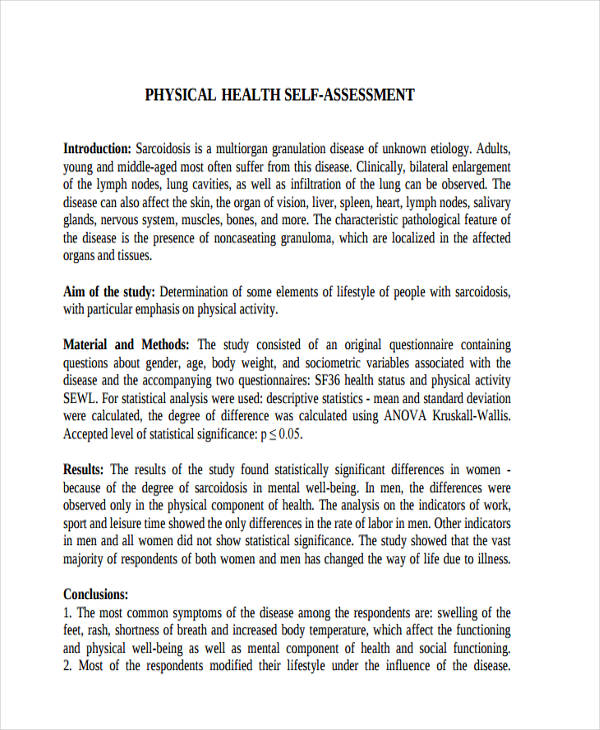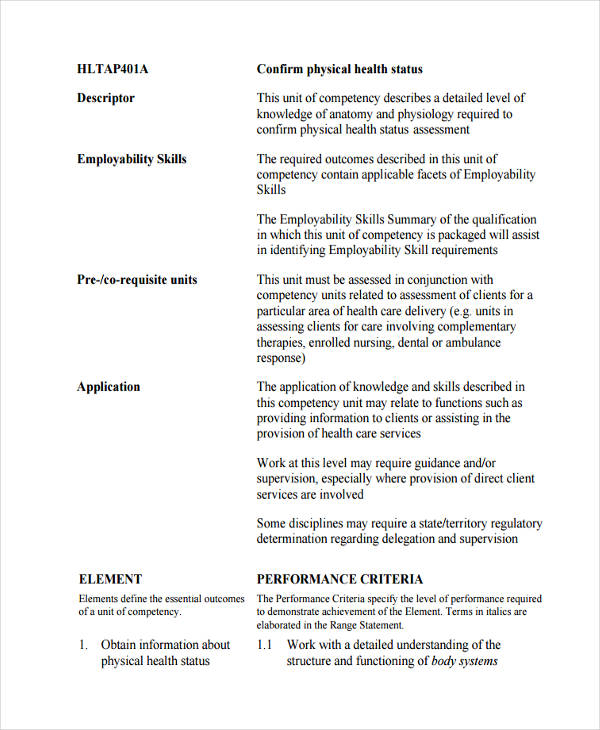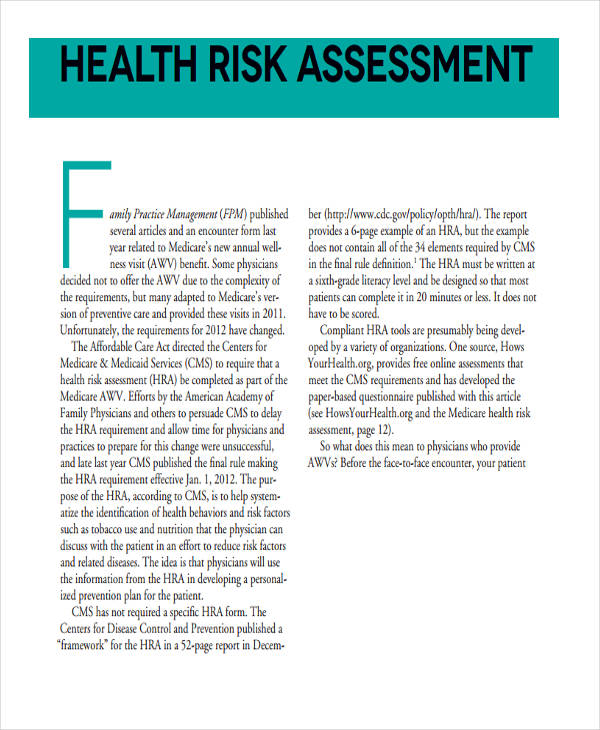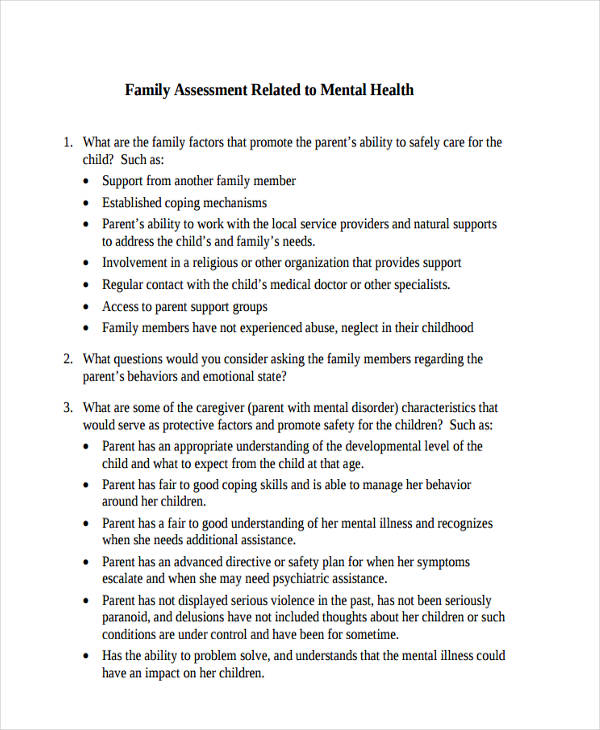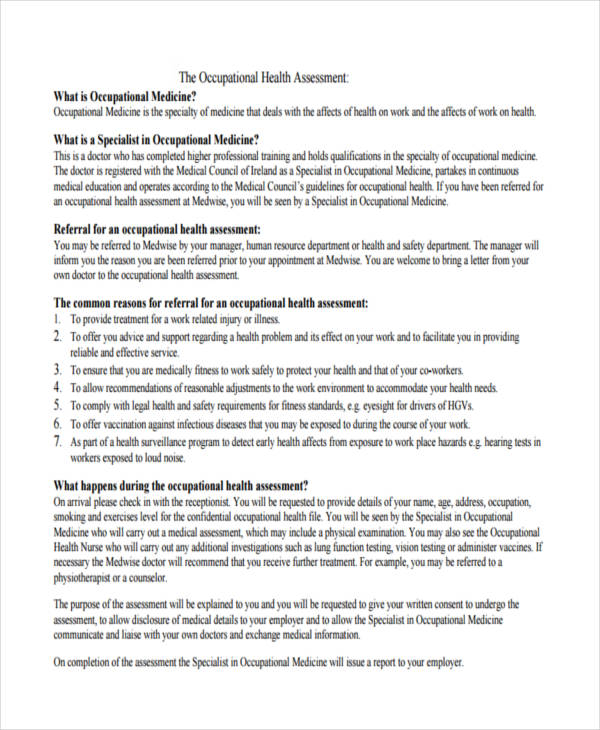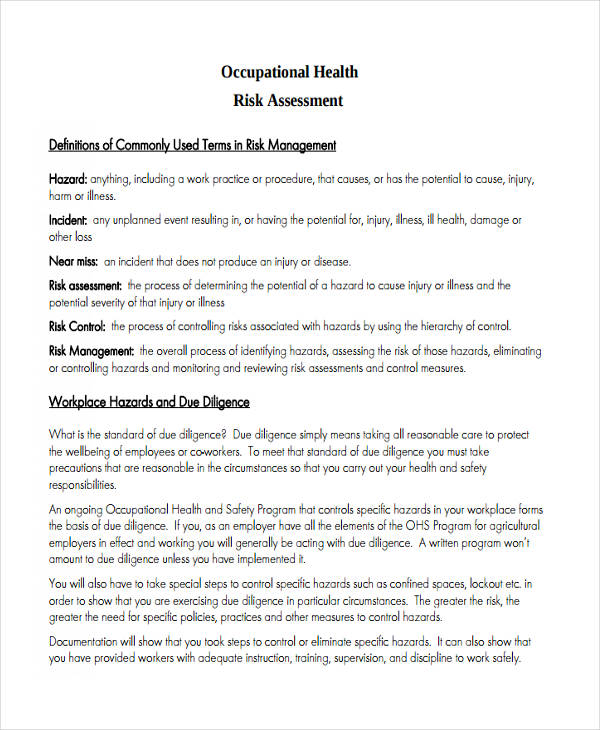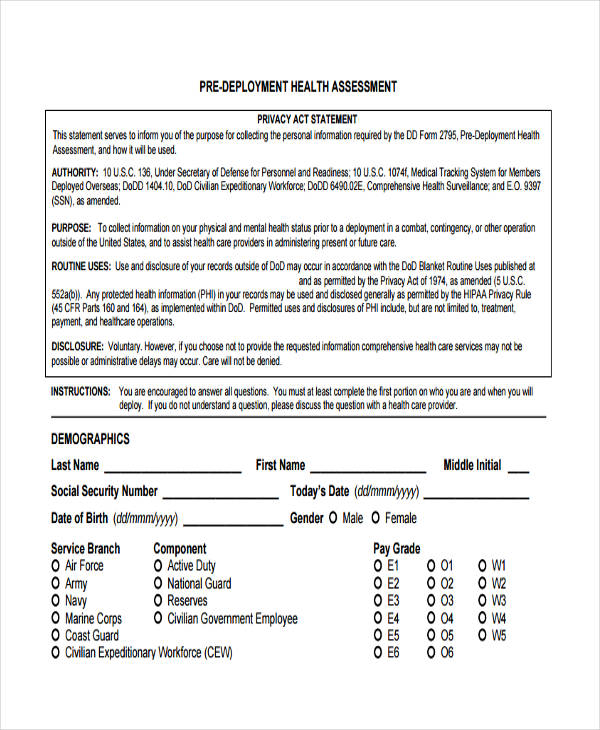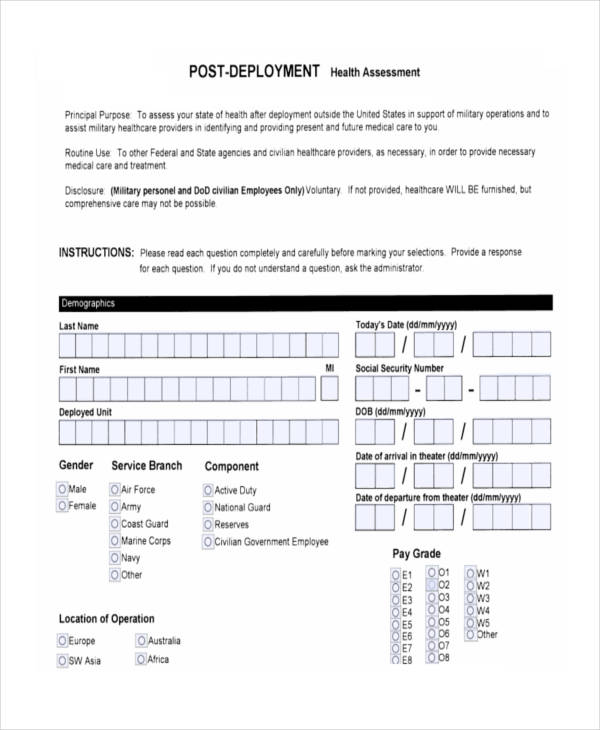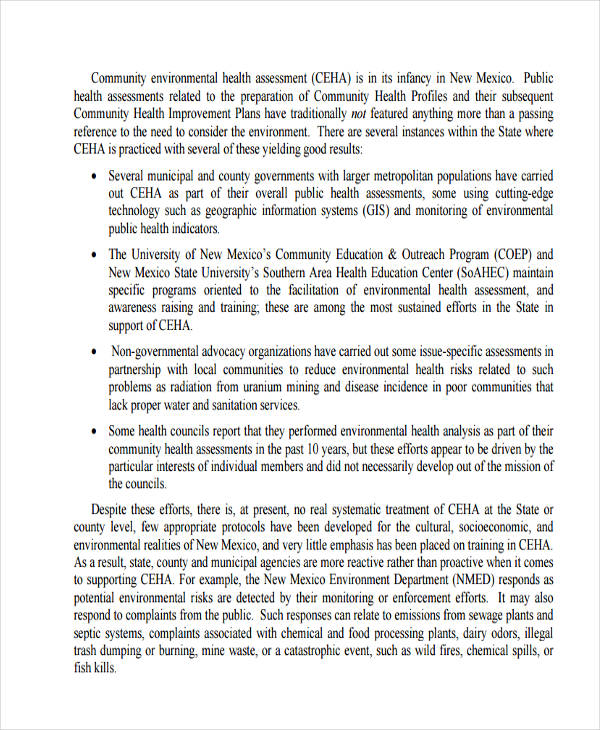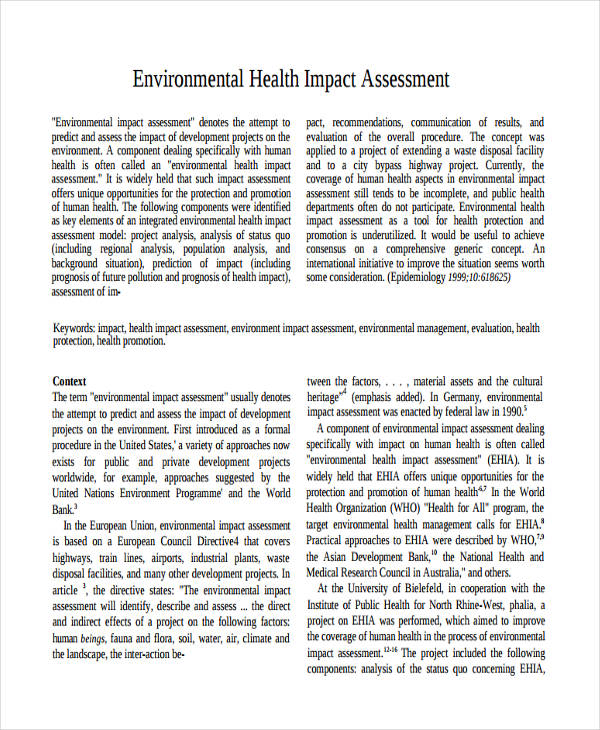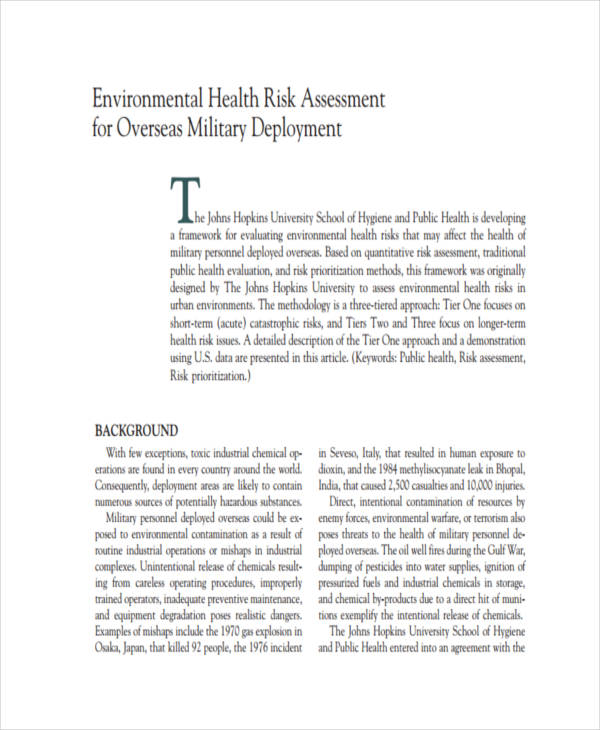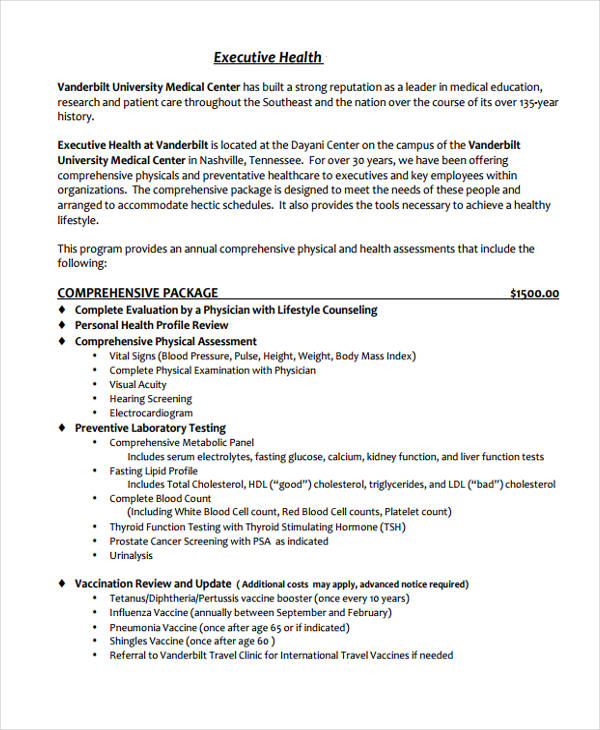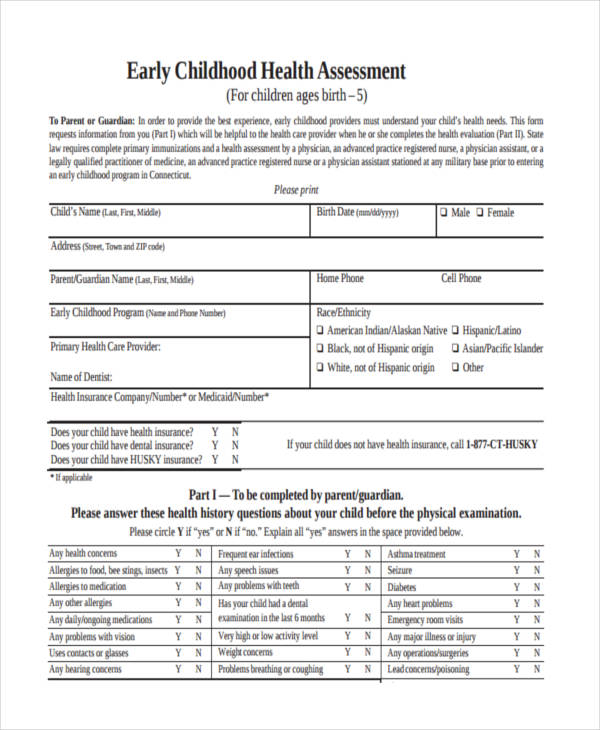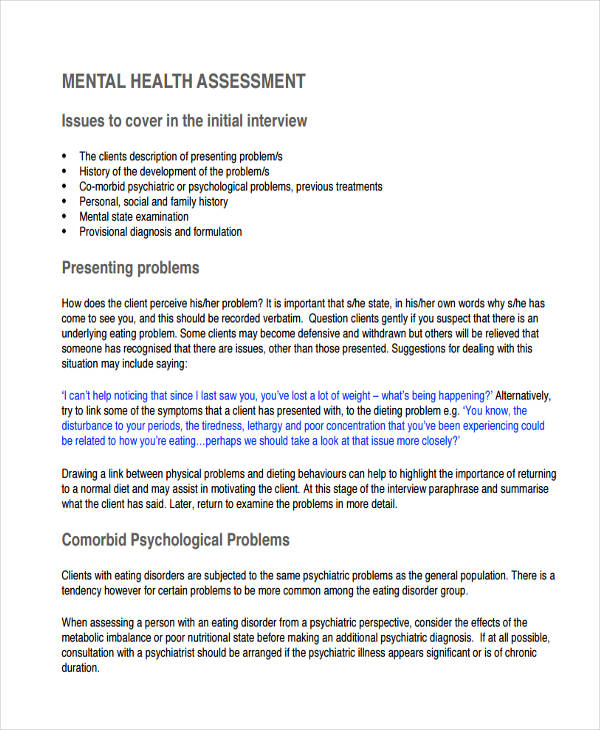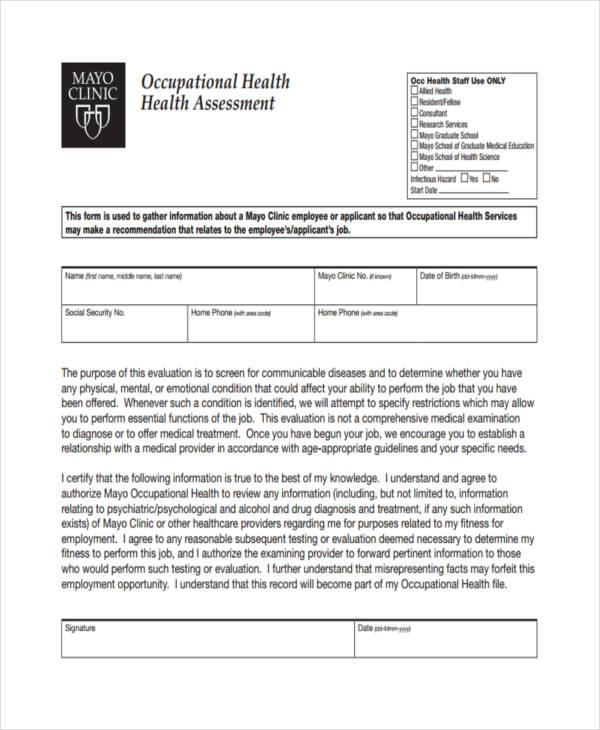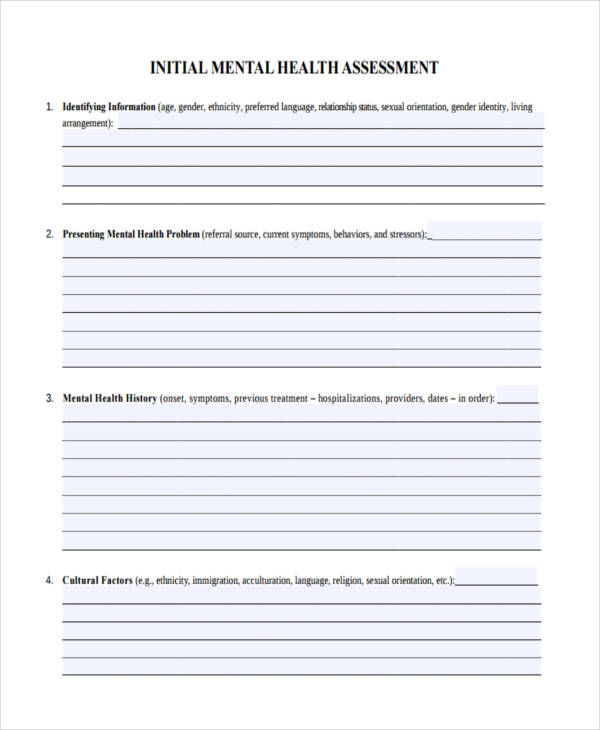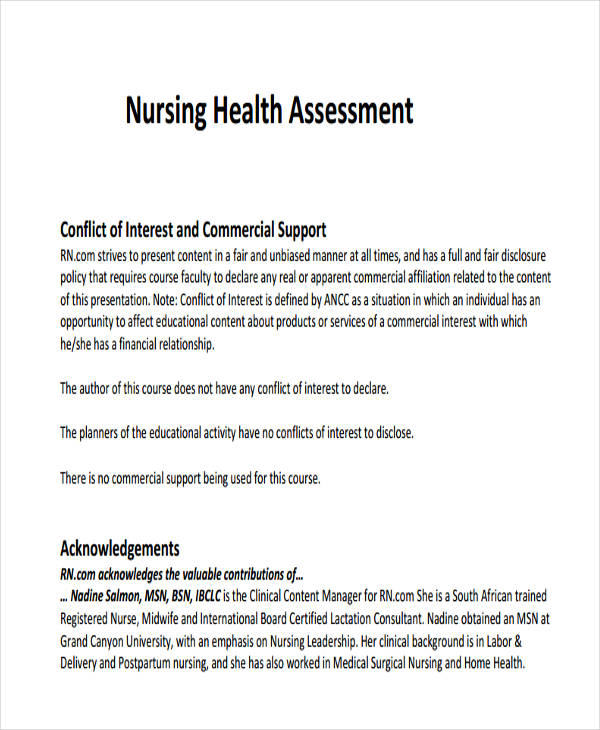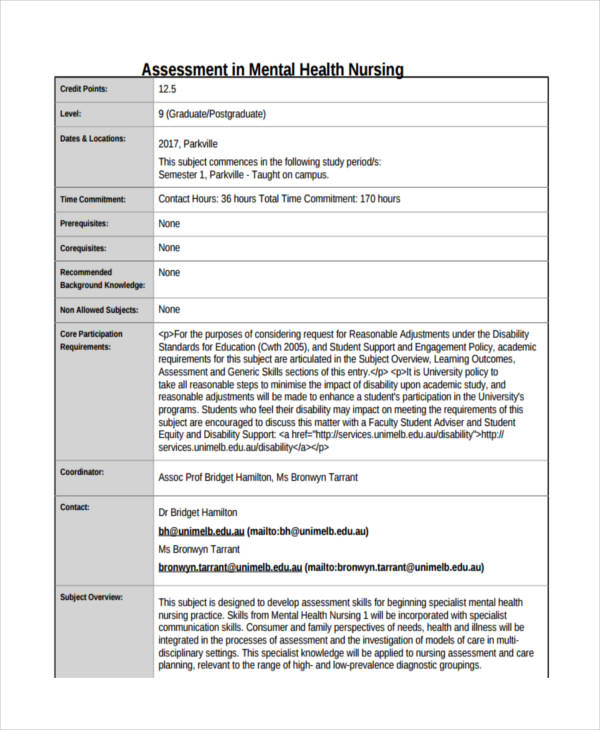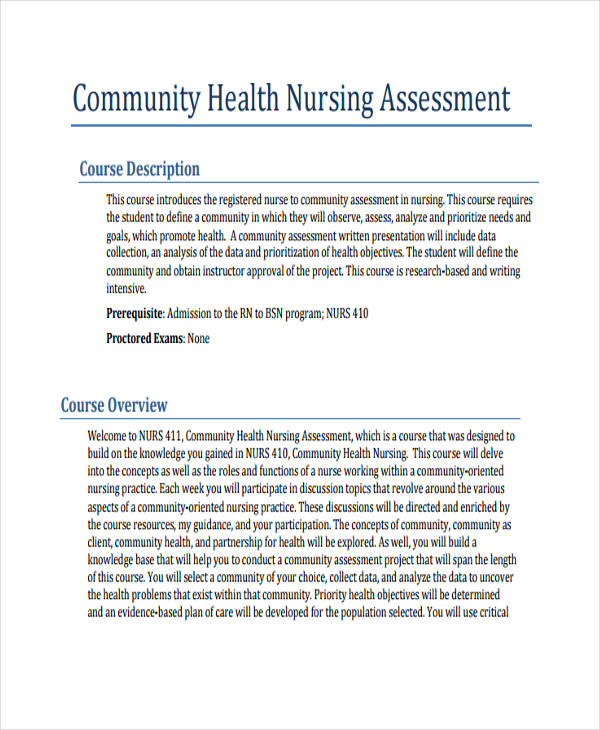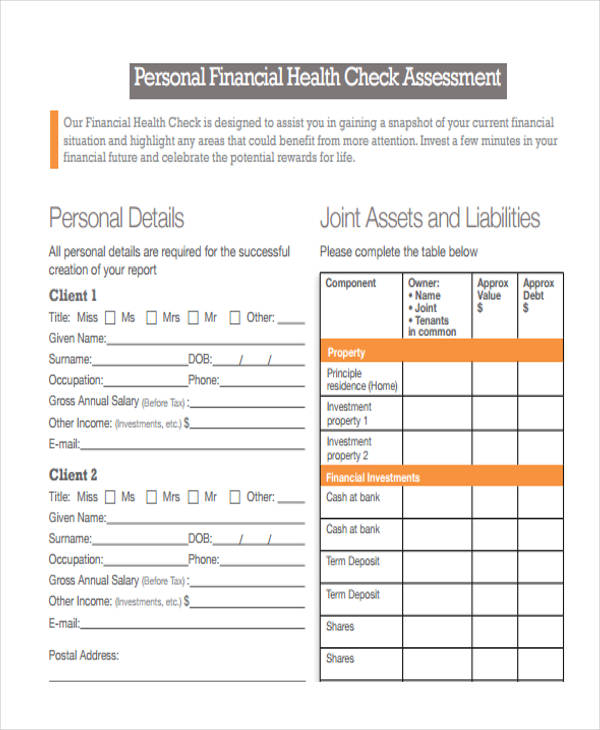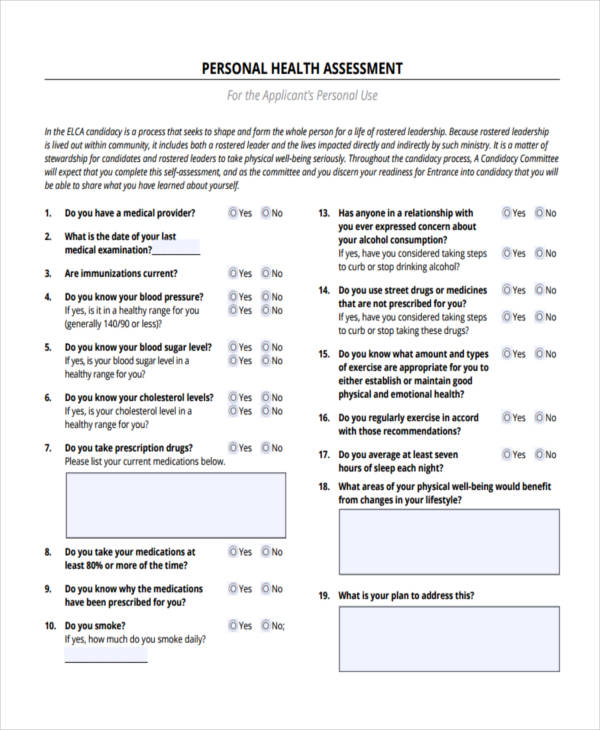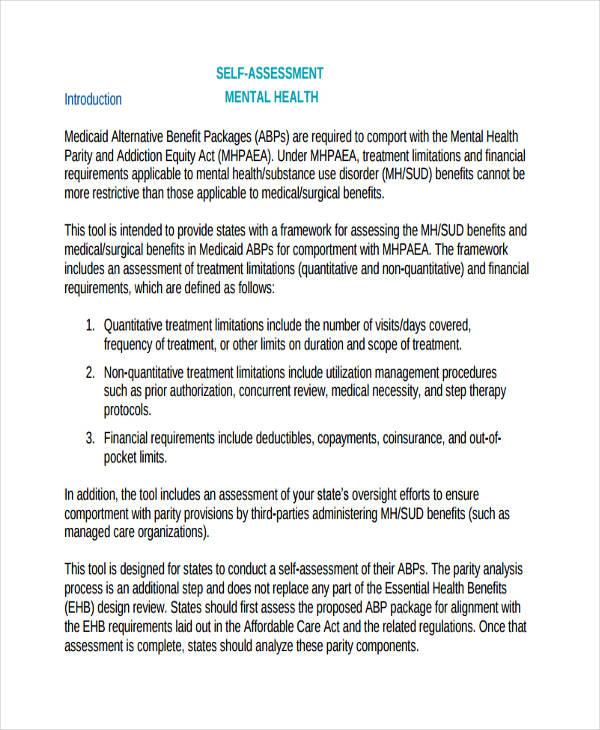36+ Health Assessment Examples to Download
People say that the only investment you were born with in life is your mind and body. A sentient mind cannot perform any kind of operation without a proper functioning body. In that context, we all should take care of our bodies so we can function well and do the things that we must in our everyday lives.
Health assessments are done to ascertain the physical condition of which our bodies are currently in. Need more information? Here are numerous examples of health assessments that you will find throughout this page you can download for free.
Health Risk Assessments
Human Health Risk Assessment
Student Health Risk Assessment
Personal Health Risk Assessment
Mental Health Assessment Examples
Mental Health Risk Assessment
Mental Health Self Assessment
Chemical Health Assessments
Chemical Health Risk Assessment
Community Health Assessments
Community Mental Health Assessment
Community Environmental Health Assessment
Community Health Needs Assessment
Health Technology Assessments
Health Technology Needs Assessment
Purpose of Health Assessments
- To establish a database. Conducting a health assessment helps in setting up a database that can be used for future reference. The assessment is also done to help or aid as to what proper care to be done or administered after the results are gathered. A person’s patient care plan may be drawn after analysis of the acquired data.
- To support a theory or question. Results from the analysis can either support or question theories regarding a person’s present state of health.
- Gauge functionality of the intervention or treatment. Doing an assessment also verifies if the on going treatment or initial treatment is working for the patient. Upon verification, the ongoing treatment can either be reinforced or totally changed.
- Collecting additional data. Assessments also serve the purpose of determining the strength and coping mechanisms of a patient after undergoing initial treatment. It proposes to get to the point of the problem.
Types of Assessment
Initial Assessment
This assessment is performed upon the admission of a patient or upon first contact. Initial assessments usually warrant a second assessment to verify results of the first assessment.
A comprehensive initial assessment aims to gather as much information as it can on the patient. This includes:
- how the client perceives the state of his health or body
- the health history of the person
- the person’s health or medical history
- his lifestyle and practices
Partial or Ongoing Assessment
The patient has already undergone an initial assessment and is back for another assessment or an on going series of assessments.
Problem-oriented or Focused Assessment
A thorough overall assessment that would direct a special concern regarding problem statement of health .
The assessment is targeting an already known illness or precursor causing the person to take an assessment.
Emergency Assessment
This rapid assessment is done during life-threatening situations which calls for immediate action. These assessments are usually required in order to determine first aid treatment to be administered to that person.
Time Lapsed Assessment
This type of assessment is done after several days or months following an initial assessment. In most cases this is regarded as a follow up or to assess if the ongoing treatment is working or if a new healthcare program must be administered.
Physical Health Assessments
Physical Health Risk Assessment
Physical Health Self-Assessment
Physical Health Status Assessment
Family Health Assessment Examples
Family Health Needs Assessment
Family Health Risk Assessment
Family Mental Health Assessment
Occupational Health Assessments
Work Occupational Health Assessment
Occupational Health Risk Assessment
Deployment Health Assessment
Pre-Deployment Health Assessment
Post-Deployment Health Assessment
Sources for Health Assessments
- Primary. Data gathered on the assessment comes from the patient or person wanting to take the assessment or health questionnaire. This is usually after the result of an interview and from an actual physical exam.
- Secondary. The data or information comes from a family member or significant other who would know the patient to a fairly good extent. This would include daily habits and lifestyle choices. The source of the assessment can also be considered secondary if they have been pulled out from the patient’s existing medical records.
Different Forms of Assessment
An assessment also differs depending on who takes the assessment or what the specifics of the assessment is for:
Human Health Assessment
Often carried out depending on which aspect of the person is being assessed.
- Personal Health Assessment
Refers to an assessment being carried out to determine the general physical health condition of a person by carrying out a physical exam. Additional laboratory exams may be required to confirm any dysfunction in contrast to the person’s age and condition. - Mental Health Assessment
Carried out with the specific intention of assessing the condition of the person’s current state of mind. Tests are given to gauge the functionality or responses of a person after asked an established set of questions. This essentially uncovers mental health problems usually causing anxiety, depression, schizophrenia, and other mental disorders. - Chemical Health Assessment
Usually taken by person’s who want to confirm their dependency or behavioral patterns concerning a drug or chemical. This assessment determines the level of addiction or dependency a person has to a drug or chemical and proposes a plan of intervention and eventual treatment. - Occupational Health Assessment
Directed to aid management regarding the employees’ health issues in relation to the nature of work being done by the particular employee or employees. Recommendations are done to ensure a healthy working environment for the employee and to avoid further employee downtime due to illnesses or accidents.
Environmental Health Assessments
Free Community Environmental Health Assessment
Environmental Health Impact Assessment
Environmental Health Risk Assessment
Executive Health Assessments
Annual Executive Health Assessment
Early Health Assessment Examples
Early Childhood Health Assessment
Free Health Assessments
Free Personal Health Assessment
Free Mental Health Assessment
Free Occupational Health Assessment
Initial Health Assessments
Initial Mental Health Assessment
Initial Home Health Assessment
Nursing Health Assessments
Nursing Health Assessment Sample
Nursing Mental Health Assessment
Nursing Community Health Assessment
Personal Health Assessments
Personal Trainer Health Assessment
Personal Financial Health Assessment
Health Self-Assessment Examples
Personal Health Self-Assessment
Mental Health Self-Assessment
Family Health Assessment
Family health assessments are conducted to address and identify health needs of a specific family. All pertaining information from medical history and records for each family member are reviewed.
Analysis examples gathered from the information would dictate the actions that are needed in relation for example to cope with a child’s safety or a mother’s pregnancy. Suggestions leading from the results would direct the appropriate course of action recommended by the assessor.
Community Health Assessment
A community health assessment analyzes data gathered from various members of the community. It determines the existing strengths and resources available to the community.
It mainly gathers information not only from residents but from organizations to the current state of environment the community is in. It addresses issues that affect the needs of the persons in the community, including the children, the youth, and even its agencies.
Assessment Solutions
Recommendations from the analysis of the assessments are generally classified by the following:
- Preventive
Recommendation is based upon stopping or hindering any known issue before they even appear or manifest. Established minor issues are to be addressed immediately in order for them not to escalate into the issue being prevented. Prevention is better than cure, after all. - Treatment
Results from analysis provide definitive answers to an on going issue which solves the problem with the corresponding solution. As the name implies, the recommended solution is blunt and straightforward. - Palliative
Recommendations are targeted only to alleviate the problem. The problem itself is not solved but somewhat lessened to a degree. Ultimately this may become a recurring problem. An example for this are painkillers. It makes the pain go away but does not necessarily treat the source of the pain.



